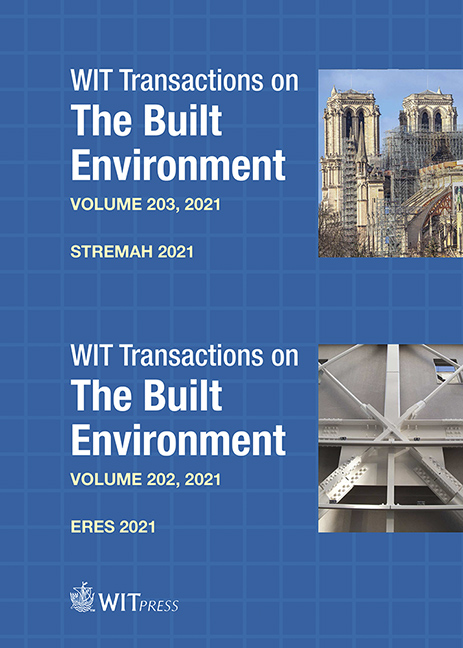URBAN PLANNING AND ITS IMPACT ON THE CITY OF HEBRON, PALESTINE
Price
Free (open access)
Transaction
Volume
203
Pages
11
Page Range
51 - 61
Published
2021
Size
1,325 kb
Paper DOI
10.2495/STR210051
Copyright
Author(s)
WAEL SHAHEEN
Abstract
Due to its history of more than 5,000 years, Hebron is considered one of the most ancient cities in the world. It has been occupied several times throughout history, by Romans, Byzantines, Ottomans, Mamluks, the British Mandate and finally the Israeli Occupation. All these people marked the urban planning of the town in many ways, until the present day. There is no doubt that Hebron City suffers from severe weaknesses related to urban planning, because of the failure of structural plans that aren't keeping up with the rapid development that the city has been going through for the past few years. Actually, if we took a moment to observe some Arab cities like Beirut and Amman, we would realize they're all in the same situation; all of them lack a proper, well-planned layout. On the contrary, very old cities such as Al-Basra in Iraq, had very special environmental considerations still valid nowadays, but there are other examples and models of sustainability standards within the planning of the Arab cities. However, we can still find some global obstacles facing the Arab World regarding their planning potentials. Palestine consists of many cities, Hebron is one of the biggest cities in terms of total area and population density. Unfortunately, it lacks an effective structural planning to fulfill the city’s continuous unstoppable development, due to various circumstances affecting the planning process in the city, which has influenced the land use. Moreover, there is a losing control over areas inside and around the city because of the Israeli Occupation. Due to the huge importance of urban planning and the human ultimate need for it in all different sectors, this research aims to explain and clarify the definition of the space and incorporate its cultural values and characteristics. The factors affecting urban planning will be clarified, as well as explaining how to create a different reality that develops the city and preserves its heritage, history, resources and sectors.
Keywords
planning, law, rehabilitation, economy, development, tourism, culture




